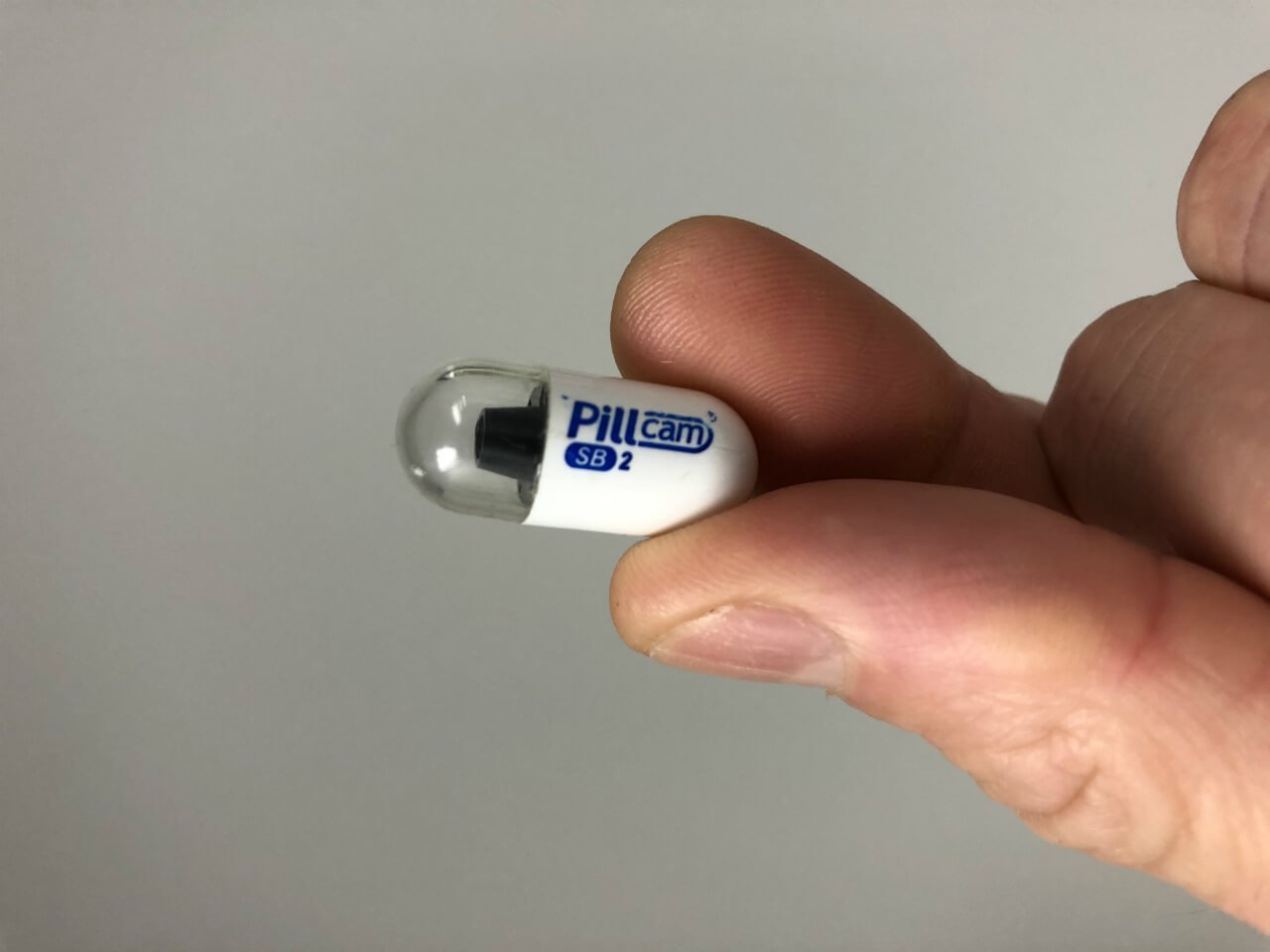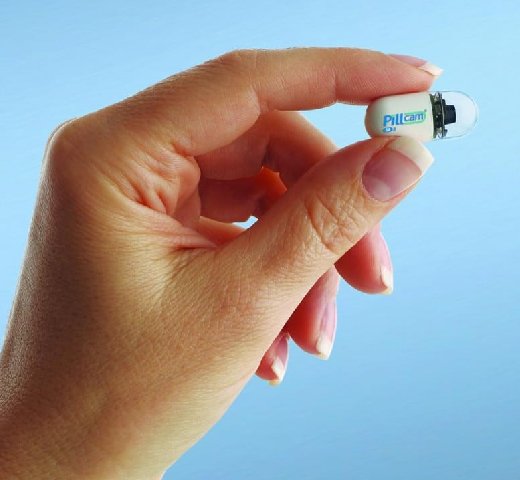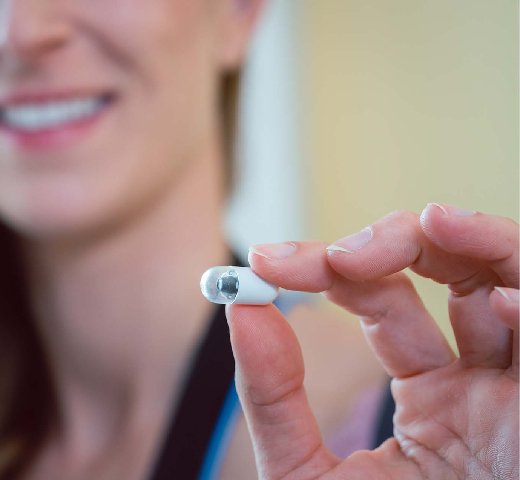Capsule endoscopy is a non-invasive diagnostic procedure that involves swallowing a small, pill-sized camera that captures images of the digestive tract, primarily focusing on the small intestine, an area that is difficult to reach with traditional endoscopy.
Capsule Endoscopy

CAPSULE ENDOSCOPY
Capsule endoscopy is a medical diagnostic procedure that allows for the examination of the gastrointestinal (GI) tract, especially areas difficult to visualize with traditional endoscopy, like the small intestine. This procedure involves a patient swallowing a small, vitamin-sized capsule equipped with its own camera and light source. As the capsule travels naturally through the digestive tract, it captures thousands of images, which are transmitted wirelessly to a data recorder worn by the patient. These images are then reviewed by a healthcare professional to diagnose conditions such as Crohn’s disease, obscure gastrointestinal bleeding, small intestinal tumors, and celiac disease. Capsule endoscopy is non-invasive, requires no sedation, and the capsule is excreted naturally.
In Dr. Sanjay K. Agrawal’s esteemed practice in Raipur, capsule endoscopy is employed as a cutting-edge diagnostic tool to provide comprehensive insights into the gastrointestinal tract, especially the elusive small intestine. The procedure begins with meticulous patient preparation guidance, ensuring clarity in images captured by the ingested capsule. Dr. Agrawal and his team analyze these high-resolution images to diagnose conditions such as Crohn’s disease, obscure gastrointestinal bleeding, and small bowel tumors. The emphasis on patient comfort and detailed diagnostic analysis underpins the approach, ensuring minimal patient inconvenience while maximizing diagnostic accuracy. This advanced technique exemplifies Dr. Agrawal’s commitment to integrating innovative technologies with patient-centered care.
Here Are
CAPSULE ENDOSCOPY F&Q's
After the patient swallows the capsule, it travels through the gastrointestinal (GI) tract, taking thousands of pictures that are transmitted to a recorder worn on the patient’s waist. These images are later reviewed by a doctor to diagnose conditions such as Crohn’s disease, gastrointestinal bleeding, or polyps.
It is commonly used to investigate unexplained gastrointestinal bleeding, iron deficiency anemia, suspected Crohn's disease, small intestine tumors, and celiac disease. It can also monitor the small intestine's health in known conditions.
Preparation typically involves fasting for 12 hours before the procedure to ensure the capsule has a clear view as it moves through the GI tract. Some patients may also need to follow a liquid diet or take a laxative.
Capsule endoscopy is generally safe. The primary risk is capsule retention, where the capsule gets stuck in the digestive tract due to strictures or blockages. However, this is a rare occurrence.
The capsule typically takes 8 to 12 hours to travel through the digestive system. Patients can go about their day but must avoid strenuous activities. The capsule is excreted naturally and does not need to be retrieved.



WhatsApp us